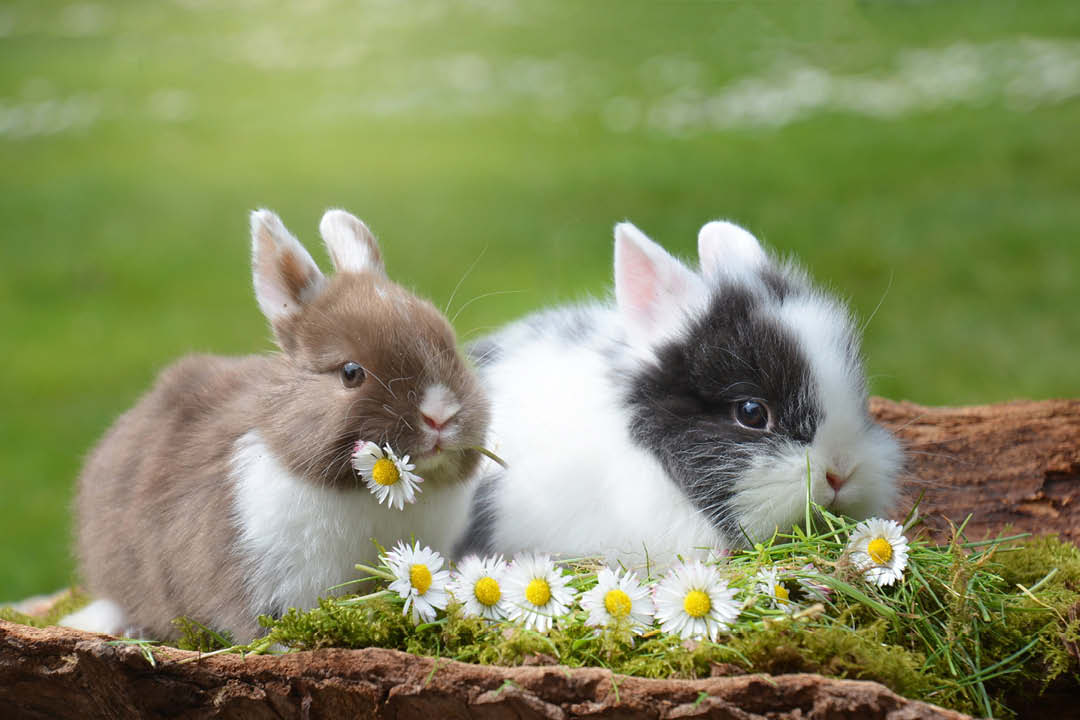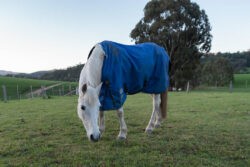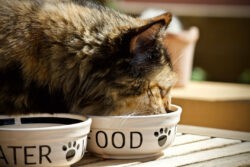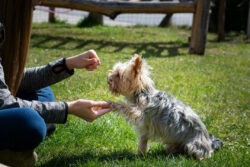There’s more to keeping a pet rabbit than you might think — from his home environment, to his diet, and his companions.
Rabbits come in all sorts of shapes and sizes – with many hundreds of varieties. They have traditionally been seen as an easy to care for pet and therefore a good first pet for children. However, their needs are quite complex and often not well understood. They are sociable and entertaining pets but they can also be shy and nervous.
The RSPCA say rabbits, being intelligent creatures, can develop abnormal behaviours and may suffer if left alone with nothing to do for long periods, so it’s essential that owners provide the right environment for their pet and ensure they have daily exercise opportunities to stay fit and healthy. A hutch and run must keep them safe from predators, and protect them from extremes of weather. It needs to be of a size that allows them to run, jump, dig, and stand fully upright on their hind legs and stretch out fully when lying down. Make sure they have a suitable toileting place separate from their sleeping areas, both of which must be regularly cleaned.
They can be taught to respond to commands using positive reward-based training. Find out more about the behaviour of rabbits on the RSPCA website: www.rspca.org.uk/adviceandwelfare/pets/rabbits/ behaviour
BUNNIES NEED FRIENDS
Rabbits are highly social and the RSPCA advise that they are kept with at least one other friendly rabbit, a suggested combination being a neutered male and neutered female.
Historically, when it was considered unsafe to neuter male rabbits and guinea pigs, rabbits and guinea pigs were kept as companions. Now that they are routinely neutered safely, it is advised that rabbits are more appropriately kept with other rabbits.
FEEDING YOUR RABBIT
Rabbits have an unusual digestive system. Food is passed through their gut and special droppings, called caecotrophs, are produced. Rabbits eat these caecotrophs, allowing the food to be re-ingested. You can ensure your rabbit’s digestive system is kept in top condition by feeding a healthy diet consisting of fresh grass that they can graze upon, and/or hay. Root vegetables, such as carrots, should be fed as a treat food.
To check that your rabbit is a healthy size and weight, check out the Rabbit Size-O-Meter on the Pet Food Manufacturer’s website www.pfma.org.uk/pet-size-o-meter. Your vet can offer advice about a healthy diet for your rabbit.
Rabbits need vaccinations to protect them against myxomatosis and Rabbit (Viral) Haemorrhagic Disease (R(V)HD) which cause intense suffering. Booster vaccinations must be given throughout life.
With regular, gentle handling, the right diet and good veterinary care, a rabbit can live between eight and 12 years; some may live longer.
DID YOU KNOW?
Rabbits have continuously growing teeth. A rabbit’s top front teeth grow at a rate of 3mm a week!
For more information, head to the RSPCA website: www.rspca.org.uk/adviceandwelfare/pets/rabbits







